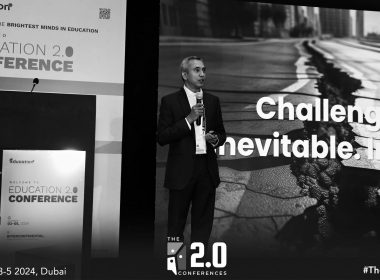Michael Koeppel is a seasoned expert in the intersection of technology and business development, with a rich background in entrepreneurship, finance, and software engineering. Known for his innovative thinking and hands-on approach, Koeppel has spent years in the industry, not only honing his technical skills but also understanding the broader implications of technological advancements. His insights into artificial intelligence (AI) reflect a blend of practical experience and forward-thinking vision, making him a respected voice in the tech community.
Embracing AI: A Tool for Amplification
Koeppel views AI as a powerful tool that, when used correctly, can significantly enhance human capabilities. “AI is not a replacement for human intelligence but an amplifier of it,” he states. Koeppel believes AI can help professionals across various fields achieve more by automating routine tasks to free up time for more complex and creative endeavors. He emphasizes the importance of understanding AI’s strengths and limitations to harness its full potential effectively.
Despite the current attention for AI – it is not a new phenomenon. In the 1950’s, Alan Turing published “Computing Machinery and Intelligence,” introducing the concept of the Turing Test to assess a machine’s ability to exhibit intelligent behavior. Also, in the 50’s, the term “Artificial Intelligence” was coined by John McCarthy during the Dartmouth Conference, which is considered the founding event of AI as a field of study.
Effective Use of AI
Koeppel advocates for a strategic approach to integrating AI into workflows. He suggests that the key to effective use lies in identifying areas where AI can add the most value. “Focus on tasks that are repetitive and data-intensive,” he advises. For instance, in marketing, AI can analyze large datasets to uncover consumer trends, while in healthcare, it can assist in diagnosing diseases through pattern recognition in medical images.
AI continues to evolve, with advancements in areas like natural language processing, autonomous vehicles, and healthcare. The focus has also shifted towards ensuring ethical AI development and addressing issues like bias, transparency, and accountability.
He also highlights the importance of continuous learning and adaptation. “AI is evolving rapidly, and so should our approach to using it,” he notes. Koeppel recommends staying updated with the latest AI developments and being open to experimenting with new tools and techniques to stay ahead of the curve.
Potential Downsides of AI
Despite his optimism, Koeppel is also aware of the potential downsides of AI. One of his main concerns is the ethical implications of AI decision-making. “We need to ensure that AI systems are transparent and that their decision-making processes are understandable,” he asserts. Koeppel warns against the “black box” nature of some AI models, where the reasoning behind a decision is not clear, which can lead to trust issues and unintended biases.
Another potential downside he highlights is the risk of over-reliance on AI. “AI should be a tool to support human decision-making, not replace it,” he cautions. Koeppel stresses the importance of maintaining a human-in-the-loop approach, where human judgment and intuition continue to play a critical role in decision-making.
Koeppel advocates the need for a balanced approach that combines innovation with responsibility. He believes while AI has the potential to transform industries and improve lives, it must be implemented thoughtfully and ethically. “We have a responsibility to ensure that AI benefits everyone and does not exacerbate existing inequalities,” he concludes.
Valuable Insights for the Future of AI
Michael Koeppel’s thoughts on AI provide valuable insights for anyone looking to leverage this evolving technology effectively. By viewing AI as an amplifier of human intelligence, focusing on its strategic use, and being mindful of its ethical implications, Koeppel’s insights for integrating AI into our professional and personal lives can help maximize its benefits while minimizing its risks.
The sectors that should benefit the most from AI are:
- Healthcare
- Finance and Banking
- Retail and E-commerce
- Transportation and Logistics
- Entertainment and Media
Learn more about Michael Koeppel by connecting with him on LinkedIn.











